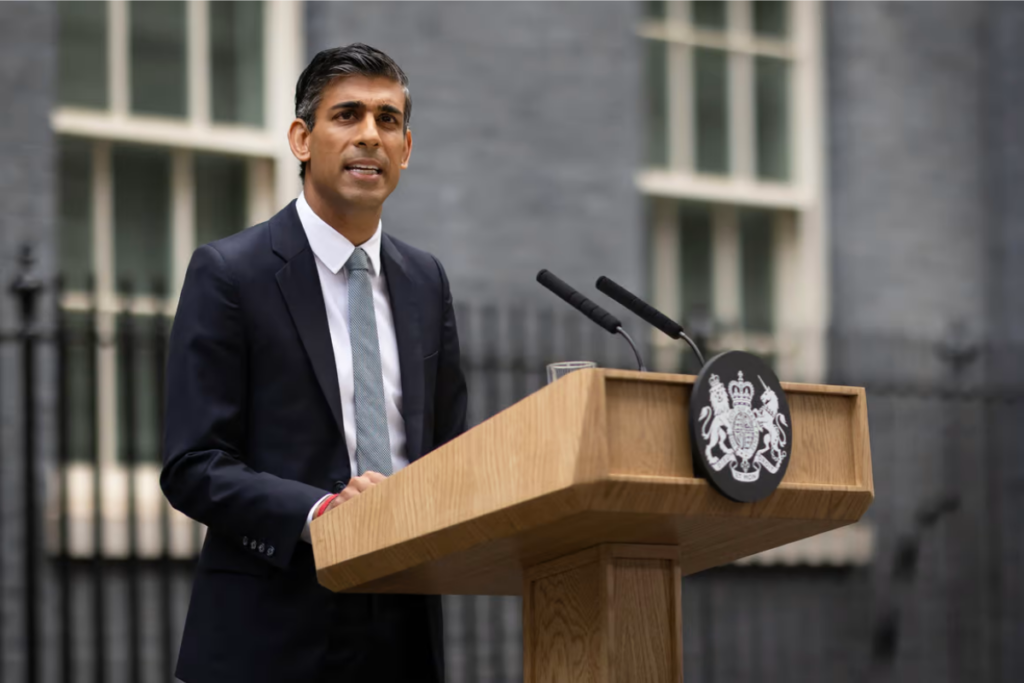New Prime Minister, Rishi Sunak, stepped into office after Liz Truss held the position for a record 44 days. After a tumultuous few weeks for environmental politics, many are eager to see what Mr Sunak will do next.
“I will place economic stability and confidence at the heart of this government’s agenda,” Sunak said. “This will mean difficult decisions to come.” But will that confidence apply to the environmental policies that desperately need attention, and what can we hope to see from the new PM for green policy?
Reimposing the ban on fracking
During his first day as PM, Rishi Sunak has already reimposed a ban on fracking, Downing Street confirmed. This follows his commitment to pledging to the 2019 Tory manifesto, and reverses Truss’ lifting of the ban during her time of leadership.
After PMQs, the Prime Minister’s press secretary said that Mr Sunak is “committed to the promise of the manifesto.” The manifesto commitment said that the ban would remain in place until there is further scientific evidence to prove that it is safe. It states: “We will not support fracking unless the science shows categorically that it can be done safely.”
For many, this is a welcome early sign from the new Prime Minister.
Making net zero realistic and lawful again
In July, the High Court ruled that the UK government’s Net Zero Strategy was unlawful. Strategy was declared too vague, with no clear deadlines or sector-specific emissions cuts. Under the strategy, there were “no assurances” that the targets listed could be met.
The High Court granted the government until April 2023, or nine months, to amend the Strategy. To provide the update on schedule and raise the degree of depth and ambition required for the Strategy to be legal, Mr Sunak’s new staff will need to get to work right now.
Passing the Energy Security Bill
The Energy Security Bill, which was unveiled in July, aims to deliver a cleaner, more affordable, and more secure energy system.
In order to lower investment risk, these initiatives include developing new business models for low-carbon hydrogen and carbon capture and storage, appointing Ofgem as the regulator of heat networks, and testing a “Hydrogen Village” by 2025, among others.
Graham Stuart, the climate minister under Truss, acknowledged that the Bill had been put on hold. Thus, it is up to Mr Sunak and Grant Shapps, his new Secretary of State for BEIS, to pick it back up and push it through Parliament once more.
Prioritizing energy efficiency
For both homeowners and businesses, energy bills are skyrocketing. Being one of the worst countries in Europe for insulation and leaking buildings is of no help.
One of the most important green policy commitments in the Conservative Party’s 2019 General Election platform was £9 billion or more in public investment for energy efficiency improvements.
By 2035, the Conservative Party wants all homes in the UK to have an EPC rating of “C” or above. As the new Prime Minister, many will be looking towards Rishi Sunak to uphold these standards.
Reconsidering solar power on farms
In an article for the Telegraph, Sunak outlines his ‘pro-farmer’ stance, speaking out against ground-mount solar power on agricultural land. He says, “On my watch, we will not lose swathes of our best farmland to solar farms.” Instead he aims to put solar panels on commercial buildings.
Solar Energy UK spoke out against Sunak’s idea: “Solar farms also generate local environmental benefits, supporting flora and fauna and increasing biodiversity. Solar farms occupy less land than golf courses do, and by providing a stable revenue stream can help to keep farming profitable. This directly helps sustain UK crop production.”
While there is positive and negative feedback, there are calls for solar power to be reconsidered on farms so that farmers can diversify and increase their incomes.

